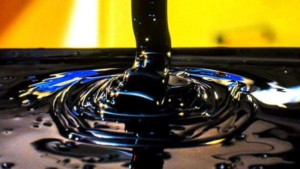
…Reserves, rig count on sharp decline
…Nigeria requires $20bn investment yearly
…Experts harp on passage of PIB, others

By 2020, Nigeria had planned to increase oil reserves from about 37 billion to 40 billion barrels.
However, investigation by Udeme Akpan, Vanguard Energy Editor, who moved from one location to another, investigating the operations of oil firms, reviewed industry data, especially the reports of the Organisation of Petroleum Exporting Countries, OPEC, here reports that the reserves have dropped to 36.89 billion barrels because of low investment and other factors. However, the situation would not improve soon as the National Assembly disclosed in an interview that it will start all over on the Petroleum Industry Bill, targeted at attracting investors into the industry.
At the backdrop of low oil prices, inadequate funds and delays associated with the passage of the PIB, Nigeria’s upstream petroleum industry appears to be struggling.
Contrary to plans by the Department of Petroleum Resources, DPR, to push the country’s oil reserves to 40 billion barrels by 2020, the reserves have dropped to 36.89 billion barrels in 2020 from 36.97 billion barrels in 2019, an 82 million barrels loss.
The rig count-a major indicator of the level of oil exploration activities – dropped to 91, significantly down by over 10 percent from 102 recorded in the preceding half-year ended December, 31, 2020 (H2’19).
When compared to the corresponding period of 2019 (H1’19) the rig count recorded a marginal improvement of about 7.1 per cent against the 85 recorded in H1’19.
However, these figures still placed Nigeria far behind Algeria, which has sustained huge lead over Nigeria with a rig count of 211, an additional 23 rigs or 12.2 per cent increase, against the 188 on its record in H1’19.
This was followed by Libya, which rig count stood at 75 in the first half of 2020, indicating a drop of 3.8 per cent, compared to 78, recorded in H’19.
Gabon came next with 32, indicating a drop of 20 per cent compared to 40 recorded in H’19.
This was followed by Angola, which recorded 25, showing a drop of 16.6 per cent, compared to 30 recorded in H’19, while Equatorial Guinea came last with 10, indicating a drop of 66 per cent, compared to six recorded in H’19.
According to reports obtained, last weekend by Energy Vanguard, from OPEC, Nigeria’s rig count almost crashed in the second quarter of 2020, at an average of 11, as against 19 in the first quarter.
The OPEC report did not state the major cause of the downward trend, but energy experts told Energy Vanguard that the low investment was fuelled by a combination of factors, including the spread of the Coronavirus, COVID-19, pandemic in Nigeria, scaled down of operations by oil companies and low demand for and prices of crude oil in the international market.
Also indicated as the bane in the trend were the low oil prices, significant cut in the capital budgets of the international oil companies, IOCs, and their indigenous counterparts, as well as the inability of Nigeria to pass the PIB into law in order to attract more investors into the industry.
Similarly, a recent visit to major installations onshore and offshore the Niger Delta, where vandalism and oil theft still thrive, indicated that some IOCs and their indigenous counterparts have further scaled down their activities, because of the COVID-19.
In a report obtained by Energy Vanguard, the Shell Petroleum Development Company, SPDC, stated: “In order to ensure that the individuals involved in the remediation of oil spills are not put at risk of COVID-19 infection, SPDC, after due consultation with relevant government regulators, is currently restricting its oil spill response activities to only those sites where containment and recovery of oil from new releases is required.
ALSO READ: Crisis looms in Delta communities over location of oil facilities
“At sites where containment and recovery has been achieved, but remediation of residual oil impact has not yet been completed, activities have been suspended for the safety of workers and community members.”
Experts’ comment
Commenting on the development, Lead promoter, EnergyHub Nigeria, Dr Felix Amieyeofori, said: “Frankly, investment in the Nigeria’s upstream sector has been in limbo, even before the COVID-19 pandemic, mainly due to the uncertainties associated in not passing the Petroleum Industry Bill, and also due to the higher cost of operations, due to the militancy in the region.
“This is as most FIDs (Final Investment Decisions) have been on hold to ensure the direction of the industry. With the impact of COVID-19 on the industry, there is additional caution in CAPEX (Capital Expenditure) injection as, according to World Oil Report in July 2020, we should expect CAPEX to decline 22 per cent, with all international regions contracting by double digits.
“Of this global average, Africa is expected to decline by as high as 43per cent, followed by Russia/FSU/Eastern Europe and Western Europe tied for second place with near 30 per cent contractions in spending.
‘‘CAPEX is also expected to fall significantly in Latin America, down 24 per cent, while only Asia and the Middle East are expected to see modest CAPEX cuts.
“This, of course, will significantly affect CAPEX in the Nigeria oil and gas sector, until there is a clear sight of relief from the pandemic.
“This, notwithstanding, in terms of dollar rate, the industry would require between $10-20 billion annually to shore up its reserves and production capacity to near the three million bpd, and all of these investments will depend on the regulatory and fiscal environment.”
Issues, Problems
Amieyeofori stated: “There are major factors that are posing existential threat. First, the delay in the passage of the PIB has not attracted investment confidence, thus, affecting the inflow of FDI, into the sector.
Second, there are still security challenges in the Niger Delta, which has translated to high cost of operations, vandalism/repairs and environmental remediation.
This has also caused high loss of crude through theft. Third, the COVID-19 pandemic has also culminated in a gross reduction in operations.”
Measures
Amieyeofori said: “The Nigerian government must realise that the delay in the passage of the PIB is killing the industry and take the bull by the horns, now, to pass it. It can always be amended, but there must be a document to guide the industry.
‘‘The militancy and security risk is a social problem and the government must own up to its responsibility by tackling this head-on! I do not think payment of amnesty stipend is the solution.
READ ALSO: Palm oil sector needs success stories to attract right investors – Awofisayo
“They must work with all the stakeholders to create sustainable jobs for the people. COVID-19 is a global disruption but, as of now, the global oil and gas industry is moving speedily to digitise the industry in order to remotely operate the assets through AIs (Artificial Intelligence) and Robotics.
‘‘This is the way forward and Nigeria cannot shy away from this reality, if it must sustain its oil and gas business. It has to also go digital and operate most of the facilities remotely.”
Vandalism, oil theft
Continuing, he said: “It is severe as most of the truck lines are still recording between 10-30 per cent crude oil theft, in addition to frequent power outages that cause production disruptions.
“NEITI report in 2019 indicated that the country lost about $42 billion between 2009 and 2018 due to pipeline vandalism and crude theft.
“This translates to an annual loss of $4.2 billion, and this is huge for a struggling industry as ours. Petroleum economics in the region has to factor in this loss in order to fully evaluate any oil and gas investment in the country.”
Way forward
He added: “The times are really uncertain and it will require caution from both sides of government and the investors, especially in a COVID-19 world.
“This, notwithstanding, government must expedite action on the passage of the PIB to, at least, provide a landing point for the investors and also frontally confront the Niger Delta insecurity menace through aggressive social investment.”
The Director General, Lagos Chamber of Commerce and Industry, LCCI, Dr. Muda Yusuf, said: “Oil price is down; cost of production in Nigeria is one of the highest globally, and there are several policy, regulatory and security issues in the sector.
“These are some of the factors. There is a need to accelerate reforms and provide enabling legislation to drive investment in the sector.”
However, it might still take a while to pass the PIB, which has been on the drawing board for almost 20 years now.
As Sen. Godiya Akwashiki, Chairman, Senate Committee on Media and Public Affairs, pointed out in an interview with Energy Vanguard, “Nigerians should wait for the PIB to be presented to the current Senate and we take it from there.
“The fact is that if any bill was presented and discussed by the 8th National Assembly, but not completed or accented to by the President, it has to be presented again.
“This means that PIB will have to go through the normal process of first reading, second reading, committee review, public hearing among others.
“This explains why we should not start to put time frame to it; the most important thing is that the current National Assembly is committed to it.”
The post Oil industry wobbles through 2020 appeared first on Vanguard News.
by Rasheed Sobowale via Vanguard News https://ift.tt/32Fy6Ql Wikipedia Our Friends From Virginia
Comments
Post a Comment